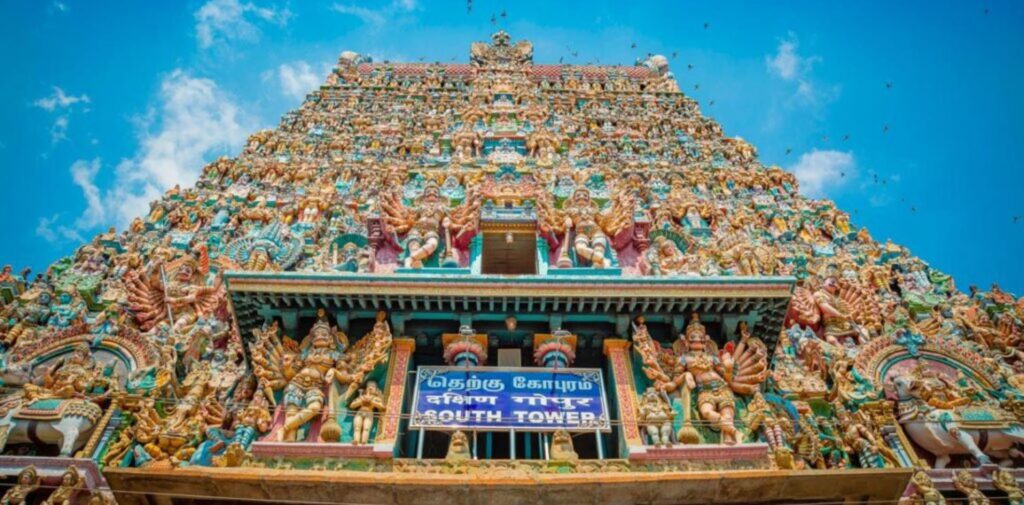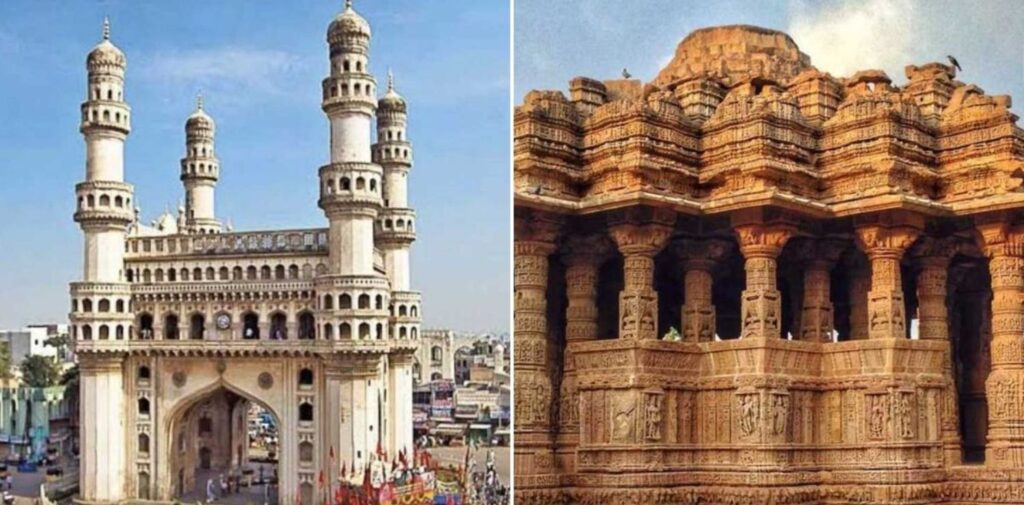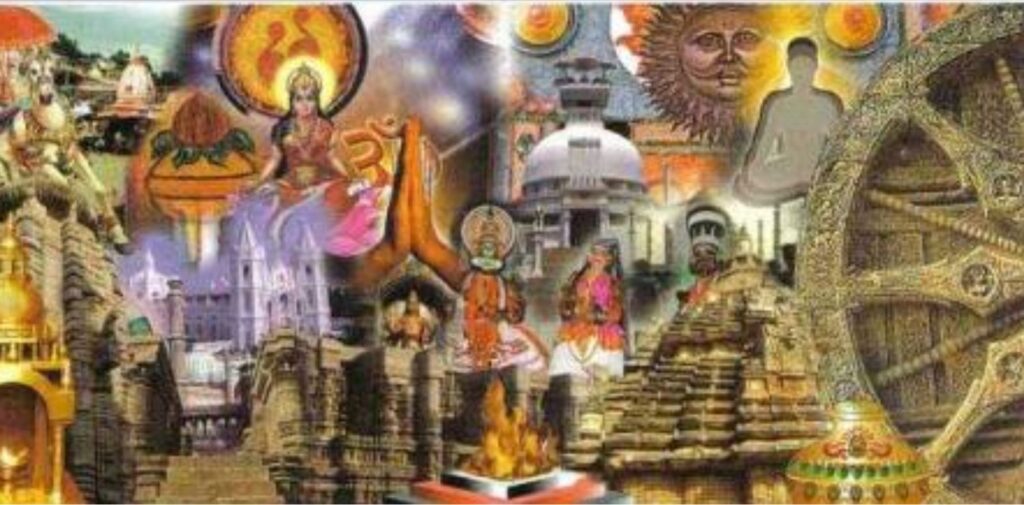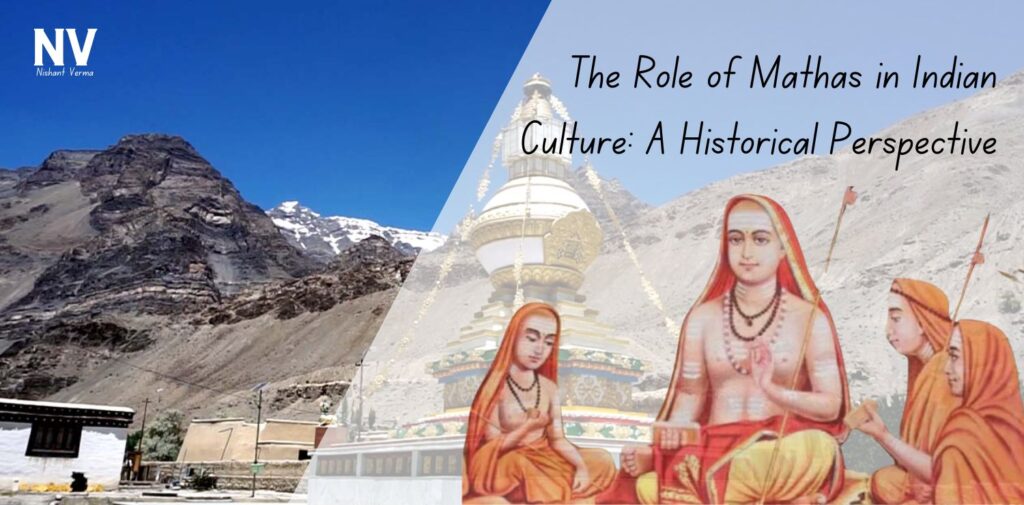Mathas, or monasteries, have been central to Hindu culture for centuries, serving as spiritual havens, centres of learning, and community hubs. These institutions, led by revered spiritual leaders, have played a crucial role in shaping the moral and cultural fabric of society.
One of the most significant examples of their influence occurred during the 1857 revolt against British rule. Mathas acted as vital communication networks, enabling information to spread quickly across India and uniting people against colonial oppression. This historical moment showcased the power of these institutions to mobilize communities and rally support for a common cause.

Government Control of Mathas: A Growing Concern
In recent years, particularly under the Congress party, there has been increasing government control over mathas and temples, raising serious concerns among devotees and cultural advocates. Critics argue that this control is part of a broader agenda to undermine Hindu institutions. Let’s explore some of the key reasons behind this troubling trend.
Regulatory Measures and Oversight
Supporters of government control often cite the need for regulation and transparency in managing the substantial assets and donations received by mathas and temples. While oversight can prevent mismanagement, it often leads to excessive interference in the spiritual and operational independence of these institutions. This undermines their ability to serve the community effectively.
Political Influence and Manipulation
The control of mathas and temples also allows political parties to exert influence over religious communities. By aligning with spiritual leaders, politicians can sway public opinion and secure electoral support. This manipulation raises concerns among devotees who fear that their sacred spaces are being used for political gain, compromising the sanctity of these institutions.
Historical Suppression of Hindu Institutions
The historical context cannot be ignored. Under British rule, many Hindu institutions faced suppression, leading to a decline in their influence. After independence, some critics argue that certain political parties, including Congress, have continued this trend, intentionally or unintentionally marginalizing Hindu mathas and temples. This historical backdrop fosters a perception that Hindu institutions are under constant threat.
Secularism vs. Religious Autonomy
India’s secular framework aims to treat all religions equally, yet the application of this principle can be inconsistent. Critics argue that government control over mathas and temples infringes upon religious freedom, particularly when similar scrutiny is not applied to institutions of other faiths. This selective regulation can create resentment among Hindu communities, who feel their cultural heritage is being undermined.

The Impact on Hindu Culture
The control and regulation of mathas and temples have profound implications for Hindu culture and heritage. The autonomy of these institutions is vital for several reasons:
- Cultural Preservation: Mathas has been essential in preserving Hindu traditions, rituals, and philosophies. Their independence allows them to engage in cultural preservation activities. Government control can hinder these efforts, leading to the erosion of cultural practices.
- Spiritual Authority: Government interference can undermine the spiritual authority of mathas and temples. Followers may feel conflicted about the influence of politics in their places of worship, leading to decreased attendance and participation.
- Community Support: Mathas often provide crucial services such as education, healthcare, and social welfare. Government control can disrupt these services, leaving communities without the vital support these institutions traditionally offered.

A Call for Cultural Revival
To enrich Indian and Hindu culture, it is essential to advocate for the autonomy of mathas and temples. Here are some steps that can be taken:
- Raise Awareness: Organizing workshops and public discussions can highlight the historical and contemporary roles of mathas in preserving Hindu culture.
- Engage the Community: Initiatives like cultural festivals and educational programs can re-engage communities and strengthen ties with their mathas.
- Protect Legal Rights: Advocating for legal measures that ensure the autonomy of mathas and temples from political interference is crucial for preserving their independence.
- Promote Dialogue: Encouraging conversations between government officials and religious leaders can foster mutual understanding and help bridge the gap between secular governance and religious autonomy.
Conclusion: Role of Mathas
The relationship between mathas, temples, and government control raises important questions about the balance between regulation and autonomy. While oversight may be necessary, it is crucial to ensure that the cultural and spiritual significance of these institutions is not compromised.
In a diverse country like India, respecting and promoting all religions is essential. The autonomy of mathas is not just about preserving Hinduism; it is about upholding the principles of freedom and diversity that form the foundation of Indian society. By supporting the independence of these institutions, we can safeguard a rich cultural heritage for future generations.
As we navigate the complexities of modern governance and cultural preservation, it is vital to recognize the critical role that mathas and temples play in maintaining the integrity of our spiritual and cultural heritage. Together, let’s commit to preserving the diverse tapestry of Indian culture for generations to come.




